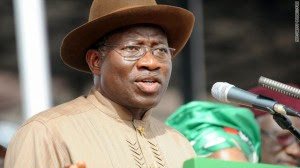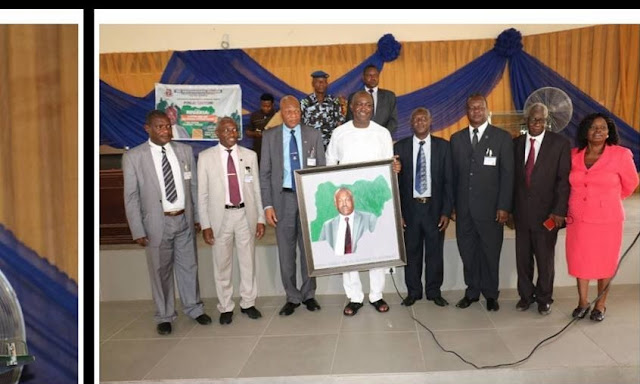Why human rights will remain endangered in Africa and Nigeria
Why human rights will remain endangered in Africa and Nigeria
Emeka Umeagbalasi ..
December 2014 marked the 66 years of the Universal Declaration of Human Rights commonly called “UDHR”. The 2014 slogan of the United Nations was Human Rights 365; meaning that every day is world human rights day.
Despite this memorable event of December 2014, human rights will still face big challenges in Africa and Nigeria in 2015. This is chiefly due to prevalence of dictatorship and tyranny in Africa and expected turbulent general elections holding in Nigeria in February. Historical Foundations of Human Rights: The recorded journey to human rights dates back to about 304 AD with the recognition of religious rights or right to freedom of religion by then monarchic authorities in Europe. The issue of human rights again appeared in the famous Fourteen-Point Program of then President Woodrow Wilson of the United States of America; a recommendation he made for the formation of the League of Nations, which was later formed in 1919. The San Francisco Conference of June 1945 that gave birth to the United Nations made reference to human rights and fundamental freedoms. In the Preamble of the United Nations Charter, the Peoples of the United Nations express their determination to reaffirm faith in human rights, in the dignity and worth of human person, in the equal rights of men and women and of nations large and small. “Promoting and encouraging respect for human rights and fundamental freedoms and assisting in the realization of human rights and fundamental freedoms” appeared repeatedly in Article 1 on “the purposes and principles of the UN; Article 13 (functions and powers of the UN General Assembly); Article 62 (functions and powers of the Economic and Social Council); and Article 76 (basic objectives of the International Trusteeship Council). This universal adoption and proclamation of the UDHR became a reality following the submission of a report of the UDHR by an 18-person committee chaired by Mrs. Elizabeth Roosevelt, which was set up by the United Nations in 1947. The UDHR document consists of Preamble and 30 articles. While Articles 3-21 contain civil and political rights, commonly called fundamental human rights/civil liberties/individual rights, Articles 22-27 contain economic, social and cultural rights. The economic, social and cultural rights are also calledgroup or collective rights. Articles 28-30 contain citizen duties’ rights or fundamental duties of citizens to their social, cultural and political communities. There are also environmental rights as the third generation rights meant to secure world’s environment by controlling the excesses of human activities on earth and safeguarding same for healthy and prosperous living. While the UDHR is morally binding on all authorities and persons around the world, the birth in 1966 of the International Covenant on Civil and Political Rights and the International Covenant on Economic, Social and Cultural Rights provided legal teeth to same in the world over through the process of accession or ratification by State Parties . In other words, the two important rights documents are legally binding on all authorities and persons around the world including the State Parties or State Actors. Nigeria ratified them in 1993 and had earlier in 1963 become a party to the UDHR following attainment of her republican status. At regional level, there is African Charter on Human & Peoples Rights, among others, adopted and proclaimed in 1981 by the Assembly of Heads of States and Government of the OAU (now AU). Nigeria ratified and domesticated it in 1983. Between the citizens and government, human rights are embedded in social contract, which is the fundamental basis upon which government exists. They are called social responsibilities in government circles and called corporate social responsibilities in corporate entities. There are other numerous human rightsdocuments adopted and proclaimed around the world designed to protect all forms of human rights and they all owe their allegiances to the UDHR and the United Nations Charter. The documents under reference have also been proclaimed and adopted to guide the social conducts of the European countries and their continent; the south and north Americans and the Caribbean countries and their continents; the Gulf Cooperation Countries, the Association of Southeast Asians (ASEAN), the Middle-east and their continent; and the Oceania and their continent. The UDHR document has been written in over 300 languages and re-grouped in language families across the world. Africa and Nigeria as hostile environments for Human Rights: Two major enemies of human rights in the world over are State and non-State violators. While human rights have found their roots in Europe, North and South Americas, Oceania and ASEAN to an extent, they are still facing chronic challenges in Africa, some former Soviet countries and the Middle-east. Of all the challenges under reference, those faced in Africa are the worst because they are fueled by both State and non-State violators. While non State violators like armed opposition groups dominate human rights violations in the Middle-East and some former Soviet States, they are doubly fueled by State violators like African dictators and tyrants as well as non-State violators like armed opposition groups and other malicious individuals in Africa. There are 64 intra State wars raging round the world involving 591 armed opposition groups, out of which Africa has 26 involving 167 armed opposition groups. There are additional three bringing the total to 29. Out of Africa’s 53 member-States, 30 are ravaged by dictatorship and tyranny. Also, over 70% of the Continent’s member-States are politically unstable. In the 80s and 90s, both African and South American Continents were ravaged by dictatorship and tyranny; but today, the South America has freed itself from the clutches of dictatorship and tyranny with Cuba remaining the only oligarchic and dictatorial country in the Continent. The South American Continent is now third in ranking in the global category of top free democratic/human rights observing Continents/sub Continents. This it achieved after Europe and North America. Continent of Oceania because of its small population comes fourth, followed by ASEAN (Association of Southeast Asian Nations) with fifth position. Africa occupies the least position after the Middle-east and Muslim former Soviet States. In Nigeria, human rights are grossly endangered and fueled by mis-governance and chronic socio-religious hatred and divisions, which have elevated culture of self-help and vindictiveness to unquenchable proportions. In all, the Continent of Africa will in 2015 remain turbulent/violence prone until meaningful regime changes are effected chasing away all dictators and tyrants that hold the Continent to ransom. In Nigeria, except all inclusive and transparent elections particularly the Presidential poll, devoid of ethno-religious extremism and socio-economic primordialism are conducted; otherwise lives and liberties of millions of ordinary Nigerians will be at intense risk during and after the polls. The country also faces resurgence of oil-insurgency in the Niger Delta South and radical Islamist insurgency in the far north except the authorities and those in the opposition play electioneering politics within the confines of international best practices.
Read full article here: http://www.opinions.ng/why-human-rights-will-remain-endangered-in-africa-and-nigeria/




Comments
Post a Comment